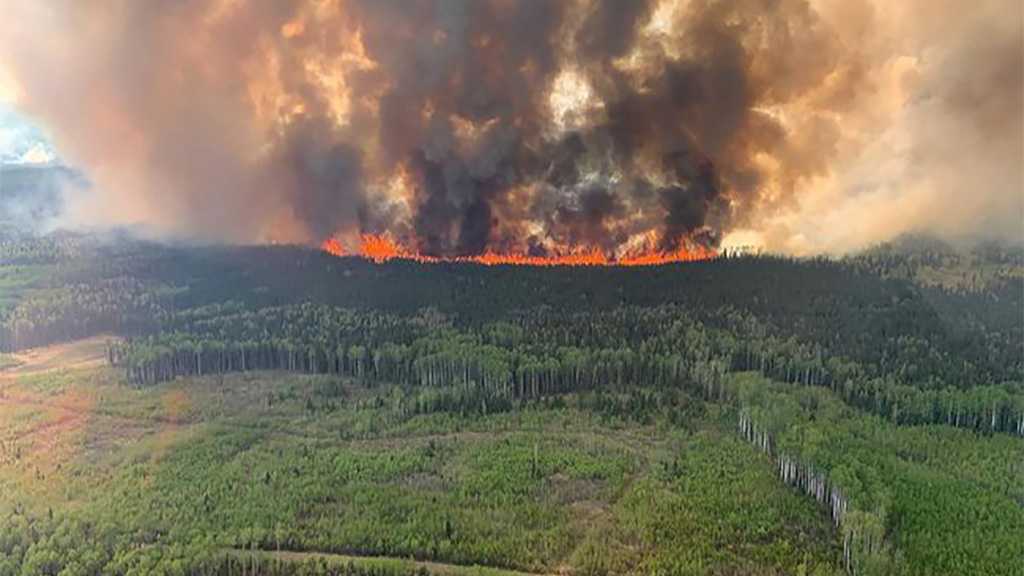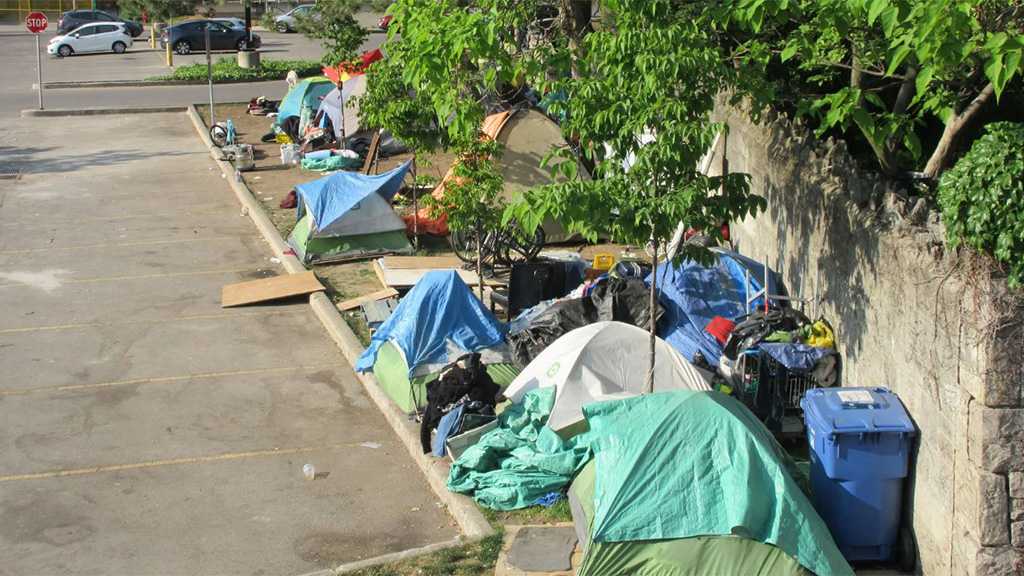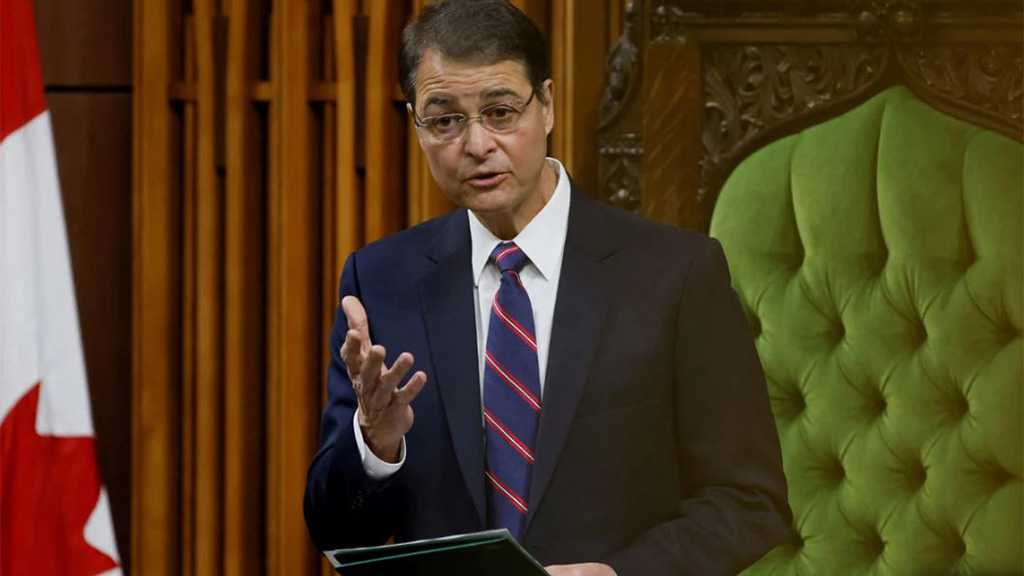
Wildfires Prompt Hazy Skies, Air Quality Warnings in Canada, US

By Staff, Agencies
The smoke from more than 150 wildfires burning in the Canadian province of Quebec has caused “milky” and hazy skies in parts of Ontario and the northeastern United States, prompting authorities to warn of poor air quality.
The government agency Environment Canada issued a “special air quality” statement on Tuesday for the capital Ottawa and Toronto, the country’s largest city, warning that “high levels of air pollution have developed due to smoke from forest fires.”
“Smoke plumes from local forest fires as well as forest fires in Quebec have resulted in deteriorated air quality. Poor air quality may persist through most of this week,” the agency said.
Quebec is the latest part of Canada to face widespread wildfires, as the western areas of British Columbia, Alberta and the Northwest Territories, as well as Nova Scotia and New Brunswick on the east coast, have reported numerous blazes over the past several weeks.
The smoke from the Canadian fires also has prompted air-quality alerts in the US Midwest, including parts of Minnesota and Wisconsin.
Bill Blair, Canada’s minister of emergency preparedness, said on Monday that 413 wildfires were burning across the country, of which 249 were considered out of control.
“I will acknowledge that the images that we have seen so far this season are some of the most severe ever witnessed in Canada,” Blair told reporters. “And the current forecast for the next few months indicates the potential for continued, higher-than-normal fire activity.”
Thousands of Quebec residents have been evacuated over the past several days. As of Tuesday morning, more than 150 wildfires were burning in the province alone, according to the provincial fire agency, SOPFEU
More than 265,700 hectares have burned so far this year in Quebec’s “intensive fire” zone, SOPFEU said on its website — up from a 10-year average of 297 hectares by the same date.
Premier Francois Legault told reporters that many residents would be able to return to their homes on Tuesday but that the province’s fight to contain the fires would continue.
One blaze near the Moisie River in eastern Quebec’s Cote-Nord area, dubbed Fire 378, “will take weeks to be completely extinguished,” Legault said.
“If we look at the situation across Quebec, there are situations that are still worrying,” he added.
Experts have pointed to climate change as worsening the size and scope of wildfires in Canada and around the world, as high temperatures and other factors lead to earlier and more destructive fire seasons.



